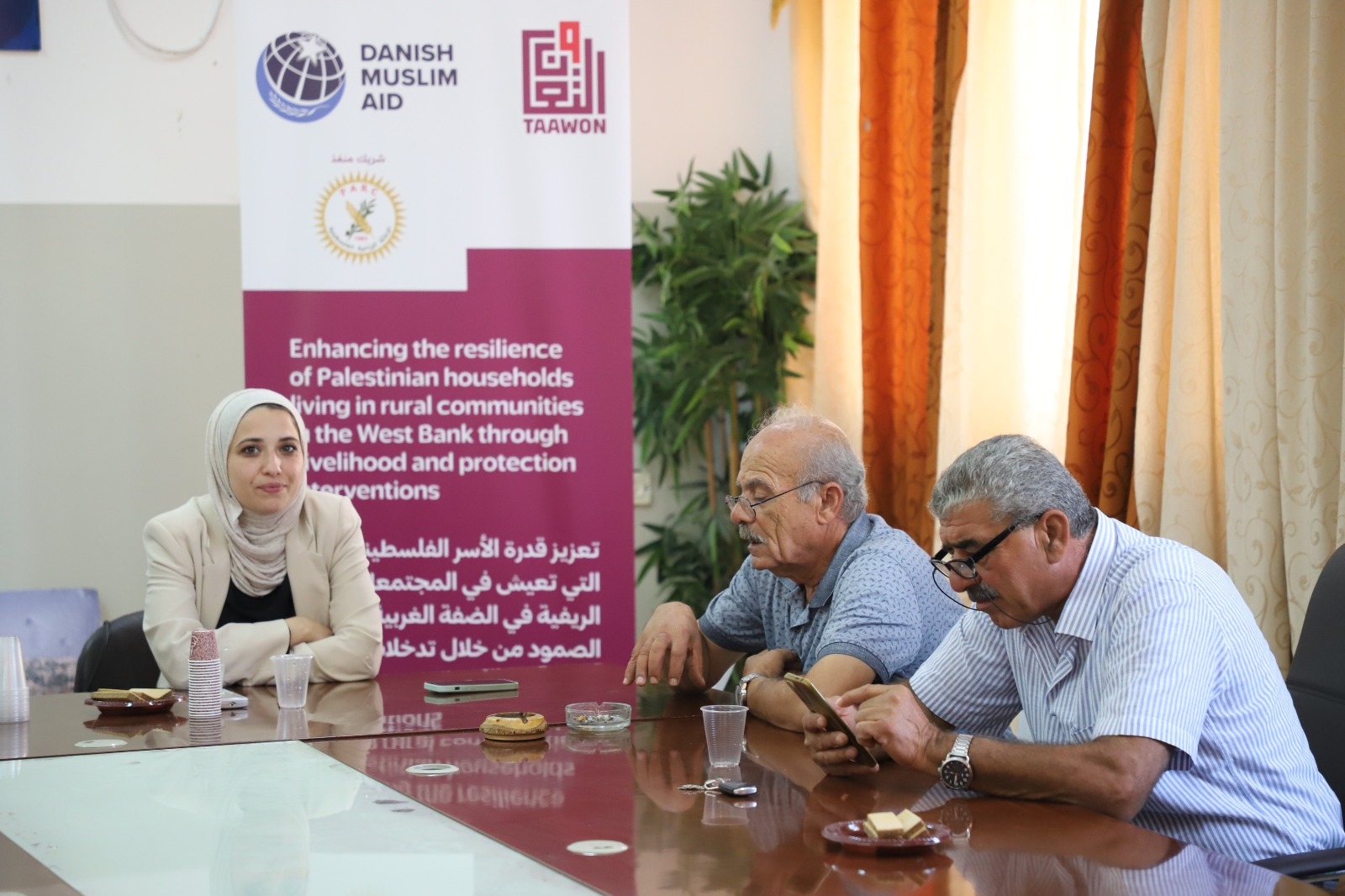
In a new step to enhance the resilience of rural Palestinian families, Taawon and the Agricultural Development Association (PARC) have launched the project, "Enhancing the Resilience of Palestinian Families Living in Rural Communities in the West Bank through Livelihood and Protection Interventions," funded by Danish Muslim Aid. This project is part of Taawon’s ongoing efforts to support sustainable development in Palestine, especially in rural areas facing economic and social challenges.
The project includes several interventions aimed at enhancing the resilience of 5,382 Palestinians living in rural communities in the West Bank and improving their income by 10%. Additionally, the project seeks to improve the income of 100 female-headed households in 10 local communities, providing them with the necessary opportunities to develop their skills and expand their businesses, enabling them to build a sustainable future for their families and communities.
The project commenced in the villages of Nablus Governorate with a series of awareness workshops held in Qusin, Naqoura, Bazariya, and Burqa. These workshops were attended by village residents, farmers, and women, along with local council leaders and members from the Taawon and PARC teams. Mr. Samih Mohsen, a member of the PARC board of directors, expressed his pride in the long-standing strategic partnership between the two institutions, highlighting the continuous support PARC has provided to the Palestinian agricultural sector since 1983.
The project’s interventions also started in the Jordan Valley through a series of workshops held in the villages of Zbeidat, Al-Jiftlik, Froosh Beit Dajan, Ein Al-Bayda, and Bardala, with the participation of 99 individuals from the villages, including farmers, young men and women seeking job opportunities, as well as heads and members of village councils. The workshops were also attended by the project team from PARC and Taawon.
The project aims to create a broader impact beyond direct financial support, focusing on enhancing community protection in rural areas by forming local protection committees and developing comprehensive strategies to mitigate natural and human-made risks, ultimately strengthening the community's ability to take proactive steps to improve their lives and futures.
Through these partnerships, Taawon continues to empower Palestinian communities by focusing not only on economic development but also on community resilience, with special attention to the most vulnerable groups, particularly rural women, enabling them to play an active role in building a better future for themselves and their families.
